Mar
9
UNCOVER THE SUN
Filed Under Combat PTSD, PTSD, PTSD treatment, Tears of a Warrior, Today's War, Treating PTSD | Comments Off on UNCOVER THE SUN
by Janet J. Seahorn, Ph.D

There are so many ways to experience trauma in the world. Combat is just one, but it is one where the impact keeps on giving and giving. For many whose painful experiences occurred once or twice, many seem to be able to get up in the morning and feel grateful for the opportunity to have a fresh new start. The sun shines brighter and the colors of the world are more intense, even if some nights are seemingly unbearable.
The difference between a one time experience and multiple traumatic occurrences is the cumulative effect. The more often an individual faces harrowing life events, the more likely the brain is going to be influenced by those events. Because the brain is sculpted by experience, everything good or bad can make a difference.
We become who we are due to our genetic foundations and our environment. If that environment is nurturing, safe and challenging in a positive way, we have a greater chance to develop into self-confident, cheerful people. If, however, that environment is saturated with violent, unpredictable and dangerous circumstances the brain molds itself into a survival organism in order to hopefully sustain the trauma. The important thing to remember, however, is the age when a trauma occurs. Earlier is not always better.
We know the brain is not fully developed until the mid twenties (especially in males). So what do you think multiple combat deployments do to a developing brain? For many young men and women the outcome is pretty darn complicated. Connections within the brain are changed. Neurotransmitters, those chemicals in the brain that allow us to feel pleasure, prepare for fight or flight, suffer with depression, and other human experiences are changed. The physical organism that controls our behavior is changed. Trauma is serious business with serious effects for many.
For warriors returning from combat, the world is not as bright and welcoming as it was before war. Sense of identity is changed… you leave as a somewhat naive youngster and return as an adult aged beyond your years. PTSD is like having a gray veil placed over the sun. Sure it still shines. Yes, you can feel the warmth of its rays.
Yet, nothing is the same as before you left. Healing from trauma can be the unveiling of the sun. The way to remove that shroud or at least make it lighter is to seek help as soon as possible. You have the strength to Uncover the Sun. More importantly, you deserve to have the full brightness of its rays lighting your days and warming your heart.
Feb
15
WICKED PROBLEMS
Filed Under Combat PTSD, PTSD, PTSD treatment, Tears of a Warrior, Trauma, Treating PTSD, War | Comments Off on WICKED PROBLEMS
by Janet J. Seahorn, Ph.D
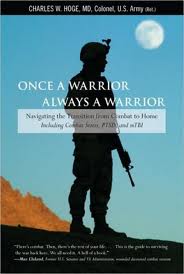
No doubt about it, PTSD is a very Wicked Problem. Wicked Problems, by definition, are those dilemmas that cannot be solved easily by using a typical approach. Anyone living with traumatic stress, especially those pressures caused by combat, will attest to the challenges of trying to solve the predicament of moving through his/her life carrying the memories and phantoms of war. If the solution was easy, it would have been found centuries ago. Yet, here we are today, in 2011, and the Wicked Problem still exists.
One of the Wicked Problems of trauma is surviving the depression that can be a part of the conflict. How does a person live with long-term depression that often becomes the new normal after battle? Constance Gibbons, one of our readers, wrote last week and shared how depression has been the new normal for many vets including her husband. After years of having it a part of their daily being, it becomes their after war identity. She stated: Another interesting aspect from those of us observers – spouses, et al – was that universally we noted the levels of sort of a baseline enthusiasm, whereas, the vet thought they were quite fine.
She explained further: As you continue to think of ‘depression’ as it may be portrayed by the vet, maybe think of a sense of resolution, unknowing acceptance, somewhere in a lower zonal level (between overconfidence and fear) from the years of living on the cusp of life and death, at a level of continuing risk so great that without the impact of the continuing penetration, after, into youthful vulnerability, it appears to those of us in observation to be baseline depression…where it is not to the vet; just an absence of heightened stimulation. Wow, now how would anyone solve such a Problem?
Veterans carry many Wicked Problems – ghosts of death and shocks of battle, memories that make if difficult to stay grounded in every day activities, and struggles to avoid the sleepless nights where staying awake is one way to keep the dreams of foreign battles from returning. New therapies and medications have helped lower the impact of PTSD but it has not solved the Problem. I read many blogs and articles relating combat PTSD to the trauma that the average person might experience. Things such as car accidents, rape, assault… all which are terrible and difficult to cope. Yet, these are hard to compare to combat where trauma occurs every day, often numerous times in a day. One of the biggest differences is besides being the prey, in combat you must also become the predator. Instead of being involved in one brutal injury or death, you may experience many.
Fighting the Wicked Problems of war takes work. It requires listening to your gut feelings as well as how others around you perceive your behaviors. The good fight involves muffling the loud voices in the head long enough to examine realistic solutions. Perhaps there will be no absolute solution to PTSD, but every day there are warriors who conquer their demons and live full and meaningful lives. Wicked Problem you may remain, but you will not take more of a warrior’s life than you already stole. You will not win this internal war, even if you succeed in taking an emotional battle now and then. You see, Wicked PTSD Problem, in spite of your persistent, you are no match for the courage and willpower of a WARRIOR.
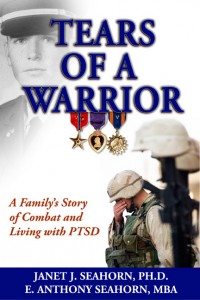
Feb
2
A HUMBLED JOY
Filed Under American Patriotism, Civilian life, Combat PTSD, Family, Life, Love, PTSD treatment, Tears of a Warrior, Treating PTSD, War | Comments Off on A HUMBLED JOY
by Janet J. Seahorn, Ph.D
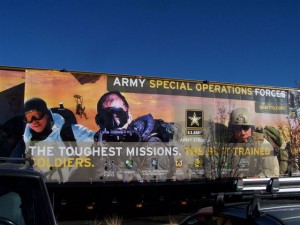
They stood before us, this beautiful, young couple. He had just returned home from a tour in Afghanistan, his second time away. They had many things they could have done that would have been much more fun than taking time to visit with us.
She was a student in my fall semester course at the University. At the beginning of the new semester she let me know her husband would be returning home soon and she wanted Tony and me to meet him. Just the request was a humbled joy. Actually meeting them on that cool winter day even meant more.
During our short time together, we did not talk much about his experiences at war except to listen to a few short phrases indicating he had been in some difficult situations.
I didn’t mention that his wife had to take an “Incomplete” for the college course because she became seriously ill and spent several days in the hospital. Somehow, all of this was now unimportant. The only thing we noticed was how the two people standing before us just couldn’t stop smiling and giggling continually as they held hands, grateful to finally be together.
My goodness, this was truly the picture of humbled joy.
That same day we spoke with an army Special Forces warrant officer who was helping to show students on campus the various skills and equipment used in the military. The young man explained that he had been in the army for sixteen years, joining-up right after high school. Honestly, he didn’t look like he was that old; he smiled widely when I shared my observation with him.
He talked about how joining the military at age seventeen was the best thing he has ever done. The army, he noted, gave him direction, guidance, and supported his development as a confident adult. The interesting detail about our conversation was how much I learned in a short time about his confidence as career military person.
At the beginning of our chat I asked how many times he had been overseas; five – six times if you counted a stint in Romania. The duration of each tour was between three and eight months depending on the mission. During several of his assignments he experienced the reality of war, including several casualties within his unit.
Yet, in spite of the stress, he seemed to be coping with the emotional and physical side effects of combat pretty well. It was challenging, he noted, to reintegrate into “normal” life on each return home, but the army gave him plenty of support and time to decompress.
He pointed out that on several occasions he was given a lengthy mental survey of over 115 items which sometimes highlighted his PTSD tendencies. Nevertheless, because he was career army, his adjustment process appeared to be faster and more comprehensive than veterans who left the service shortly after returning from battle. There does seem to be some significant benefits for the men/women who are in the military long term.
Perhaps being in a community of individuals who have experienced similar battle conditions helps the healing and understanding process. Being around other soldiers who can identify with the pain of combat; others who quietly appreciate the sacrifice of serving our country may lessen the feelings of emotional trauma of being alone in a world where most people haven’t experienced war. This, by itself, would be an immense relief because one wouldn’t have to pretend everything is OK when it isn’t. You wouldn’t have to go through each day feeling lost and alone because there would be a band of brothers surrounding you with knowledgeable support. At any rate, this young soldier certainly gave me some things to think about.
Humbled Joy, invisible, yet real. Thank you.
Jan
26
HIDDEN IN PLAIN SIGHT
Filed Under Combat PTSD, Life, Peace, PTSD, TBI & PTSD, Tears of a Warrior, Trauma, War, Wisdom | Comments Off on HIDDEN IN PLAIN SIGHT
by Janet J. Seahorn, Ph.D
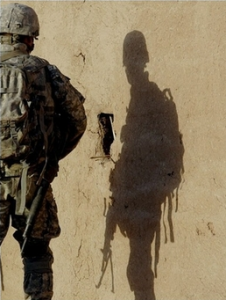
There is a phrase that one hears every now and then, Hidden in Plain Sight. Four simple words that eloquently reveal the complexity of the impact of trauma on one’s mind, heart, and soul. We see the person; we look at the eyes, the body language, the being’s form. The suffering is present in plain sight for all to witness. Yet, few do, lacking the keen observational heart skills required to notice anguish.
There are days I wish I didn’t see it – the faces of children battered by abuse and neglect; the adolescent’s depressive absorption into the ugly world of alcohol and drugs, and the veiled, but ever present ghosts of veterans, young and old carrying their memories of war. They haunt me as the world moves around their pain because it is hidden in plain sight.
Much like ‘Don’t Ask, Don’t Tell’, we are a nation that prefers to maintain our equilibrium at all cost. We tend to be uncomfortable with sorrow even when it stands knocking at our front door asking only for recognition and a bit of compassion.
We say we are a nation of empathy, yet often dismiss the humanity that exists in every person, especially those with whom we don’t agree. We argue we are intelligent, proficient thinkers, yet fight rigorously to disqualify any information that does not align with our personal paradigms/beliefs, whether true or misleading, without accurate evidence or data.
The answers to our current and future problems are available, but for too many they are hidden in plain sight. It will take incredible courage to look into our own minds and hearts searching for what is right and true. It will take courage and honest self-reflection to heal the hidden wounds of the wounded, but it can be done. What lies before us does not need to consume us with fear or apprehension. When confronted, trauma and pain can be overcome and no longer hidden or carried alone.
Light and sunshine are incredible healers.
Dec
9
DO YOU SEE WHAT I SEE
Filed Under Christmas, Combat PTSD, Life, Love, Peace, Tears of a Warrior | Comments Off on DO YOU SEE WHAT I SEE
by Janet J. Seahorn

A favorite Christmas carol asks the questions, “Do You See What I See”? “Do you hear what I hear?” “Do you know what I know?” During this holiday season, where many do not feel so holy; where many do not hear the sounds of joy that carols bring and angels sing; where many have yet to believe that good still exists, perhaps there is a message of gentleness if we are strong enough to trust.
Yes, I realize I am an optimist. Truly, it is one of my best qualities, besides a distorted sense of humor. There would be no “today” for me if these gifts were not part of my being. I am pretty certain I would have given up a long time ago for that choice certainly seemed easier. Yet, I’ve always known giving up wasn’t an option or a model I wanted to give others, especially my sons.
So, what do you see? In this challenging world of war, political disgust, and self-centeredness there are abundant examples of crap. But look around. Beauty is, also, everywhere – in the face of an innocent child, in the brilliance of holiday lights; in the fresh whiteness of snow… it exists if we look. On my refrigerator I have a post-it-note that says, “Focus on the possibilities, not the limitations”. It is life-saving advice.
Next, what do you hear? Undoubtedly I hear the weeping of those in pain both physical and mental. Those who have experienced inconceivable loss. Those who live with the memories of combat past and present. Those who are challenged by sickness. Physical aches are difficult, but emotional wounds are far more exhausting, for emotional pains are the ones others cannot see or hear. These are the silent screams of the soul, and they demand a great deal more stamina. Often these cries seem to overpower the humanity of our being. Such times will demand we listen for what is decent and soothing; a breeze rustling in the leafless trees, a favorite song, a small child giggling over a ringing silver bell, or the quiet gaze of love that says more loudly than any words… we are cared for more than we can imagine.
What do you believe? Do you believe in the seen or what is unseen? Believing is a choice. As a scientist I rely on hard, quantifiable data to answer research questions. However, the world’s most noteworthy gifts cannot be counted or even proven. Gifts such as goodness, love, and miracles are beyond the “proofs” of men, yet they exist. One cannot measure honesty; he cannot measure wonder, nor is he capable of determining the reality of love. Yet, these exist. These are the staples of our days. They allow us to continue living in spite of our frustrations and grief. They are more powerful than any pill, any counseling program, or any doubts.
As you move through your sometimes difficult days, focus on the good things you see; listen for what soothes your heart; believe in your personal power and the vast energies of good which are still present in our lives. And believe, “what is needed is on its way, right now”!
Look, listen, Believe.
Nov
28
THE JOY CHALLENGE
Filed Under Christmas, Combat PTSD, Family, Joy Challenge, Peace, Tears of a Warrior | Comments Off on THE JOY CHALLENGE
by Janet & Tony Seahorn

It is a bit sad to think of celebrations as a “thing” to “get through”.
Unfortunately, for many people suffering from trauma and loss, that is precisely the case. We had a wonderful Thanksgiving with family and friends. Dinner was scrumptious with tasty fares of turkey, dressing, creamy mashed potatoes, and several great desserts. Laughter was abundant.
Yet, for Tony, the noise, the larger number of people – it was only nine of us total – found it still an effort to make it through the day. After dinner, when we all were playing games, he retired to a quieter room to watch football and relax. Our sons would go down to chat, but it wasn’t the same as having him join us in the fun. After everyone left, Tony felt the familiar pangs of sadness and guilt. He wanted so much to spend more time with everyone, but simply could not manage it. Trauma squeezes an excessive sum of happiness from folks. It is the thief who continually keeps on taking and taking and taking. Unlike the Grinch who stole Christmas, this silent bandit never gives anything back.
It is heartbreaking to watch the joy of this beautiful season being weakened by suffering. Therefore, I am sending forth a challenge to each of our readers; a challenge that may take some real effort each day. This may be a test that will demand some thought and determination if it is to be successful. But most of all, this challenge will only be taken on by those who really do want extra joy in their coming days.
For most us when we are feeling a bit down we have to put forth special attempts to look for the joy around us. At other times, usually when things appear to be quite desperate, we will have to create joy. Normally, the only way we are successful in creating joy is do something joyful for someone else.
To begin this challenge, make a list of things that make you happy, a clumsy puppy, your mates smile, a quiet walk along your favorite path… Whatever it is write it down, then paste a copy on your refrigerator and your bathroom mirror – for obvious reasonsJ
Now, for the next four weeks take time each day to achieve at least ONE thing on your list. If you are absent minded like me, put a mark on the calendar that you made your JOY commitment for the day. Look around carefully, where do you notice someone in need of assistance? Perhaps this is your chance to CREATE joy, doing something for someone else. Taking an action that may take a bit of a burden from a family or person in need. Golly, these are acts that a Grinch would detest, because bandits can’t steal what is being given from the heart.
Finally, and I very much hope Tony and I hear from many of you, sometime before Christmas send us a short message to let us know if this challenge made your holiday season a bit better this year.
If you did perform an “act of kindness”, we would love to hear about that too. In our Christmas week blog we will be a sharing the messages we receive. Do something special this season, take this Joy Challenge.
In doing so, remember this quote by Charles D. Gill,
“Believe that you make a difference. There are many wonderful things that will never be done if you do not do them”.
We wish you twenty-five days of amazing goodness. May this season bring you the joy you so richly deserve.
Seasons Greetings
Nov
23
Humility & Bravery Visible
Filed Under Combat PTSD, Life, PTSD, PTSD treatment, Tears of a Warrior, Treating PTSD, War | 2 Comments
by Janet J. Seahorn, Ph.D
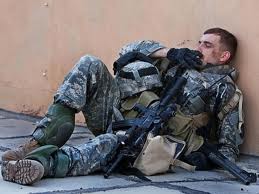
The day was wet and overcast.
Upon arriving at the VA Hospital in Denver, we noticed how many patients seemed to be waiting for a bus or a taxi. Tony didn’t appear overly eager to walk into the building. Just looking at the entrance from the outside made him nervous. Walking inside was even worse. Almost forty years ago, this was the place he went to get help for the nightmares and panic attacks he was experiencing after returning from Vietnam. A young therapist at the time, untrained and unskilled in working with military personnel thoughtlessly told him to be grateful he made it home, and get on with his life. For thirty years, Tony never went back there… or anywhere else for assistance.
Thank goodness we now have a verifiable diagnosis of these frightening memories; it is PTSD, and veteran centers across America are far more proficient in caring and supporting our wounded troops. Nevertheless, Tony had not been back to the Denver VA Hospital until Monday. We were going to talk with troops in the PTSD Unit of the hospital. This is a seven week program where vets get intensive counseling and treatment for their combat traumas. Today there are nineteen men attending the afternoon discussion. Humility can’t quite describe what we feel when we do such meetings.
The majority of the vets were from the Vietnam era with the remaining members from Iraq and Afghanistan. I am pretty sure most people have little understanding of how much suffering each patient has survived; years of torment and silent screams. Each face revealed a unique map of torment. It appeared that every wrinkle held its own story, its own remembrance. Yet, it was the younger warriors who made the most emotional impact. Perhaps this was because they reminded us of our sons. Or perhaps, we were too familiar with the pain they were experiencing and the long journey still ahead. Youthful faces were not yet lined with creases, though their eyes held an even deeper look of anguish. Yesterday’s combat field was not that far from today’s reality. Time had not yet put any distance from the rawness of war. Where several Vietnam vets were willing to talk, the young fighters stayed silent.
At the end of the afternoon, one young marine told me how difficult it was for his mother to understand what was happening to him. He talked about how she just kept saying, “Why don’t you just get better? Why aren’t you back to your old self? You weren’t wounded, what is the matter with you?” and then he said sadly, “she told me, why can’t you just take a pill and be OK?” Then he quietly stated, “I’m trying’ I’m really trying, but I just can’t seem to forget, no matter how hard I try.”
It was heartbreaking to watch him describe his situation. First he endured the many horrors of combat. When he came home, he had to endure the unawareness of the “ordinary” people.
Next, there was the tall, thin youth who sat shifting in his chair seeking a more comfortable position. His back pain was obvious, especially when he cautiously walked bracing his weight with his cane. The sweetest, shyest smile spread over his face as he approached. What he requested was an extra copy of our book, Tears of a Warrior. He wanted to send it to his wife, hoping she might read it before he returned home from the hospital. Perhaps she would gain a better understanding of his condition. Perhaps, by understanding, she would be able to bear the years ahead. Perhaps together they might make it though the dark times still to be faced.
More than ever, I am touched by the courage the young and the old veterans demonstrate. A valor that leads them forwarded searching for a small bit of peace. By making that huge leap of faith to enter this seven week program, they lay bare their demons, hoping by exposure to the light these may leave, or at least become less frightening. For most, I believe this will be true.
Like in combat, sometimes to survive, one must rush towards the enemy fighting with every ounce of power he/she possesses. Healing requires that same force of power – rushing towards the demons, lets them know you no longer will run from them. When the hiding ends the healing begins.
Have a healthy and Happy Thanksgiving.
Nov
2
THE EYES OF TRAUMA
Filed Under Civilian life, Combat PTSD, Life, Tears of a Warrior, Trauma, War, Wisdom | Comments Off on THE EYES OF TRAUMA
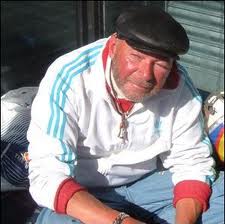
A face conceals many things through silent smiles and quiet words. Yet eyes speak silence louder, clearer than any verbal language. The mouth can easily fake joy, and talk can be nothing more than convincing noise. But the eyes, the eyes can’t fake unfelt laughter or peace. The eyes tell their own story. A story that sometimes screams of sadness; a story that carries the pain of guilt and desperation; a story burdened by trauma inflicted by war, abuse, or neglect.
Perhaps this is why few people are strong enough to stare into another’s eyes without looking away. When doing so we are really checking for evidence that what is said matches what is unsaid. Only eyes can confirm such a truth. We listen more fully, not just with our ears, but with our eyes. Deep listening is what many psychologists such as Daniel Siegel refer to as “feeling felt”. Feeling Felt tells the story teller that he/she matters. That his/her experiences are valued and honored.
Why would I write a blog about eyes? Simple, many, many beings are walking through our world with silent screams. No one seems to notice or take time to pay attention. Few things in life are harder for a human being to sustain than being invisible to others. Homeless people understand, abused children understand, and traumatized vets understand.
Next time you see someone whom you suspect may need to be seen, be brave enough and care enough to listen to what the eyes are saying. It is a humbling tribute that a person has placed his/her trust in your willingness to be with them, even for only a small amount of time.
Oct
27
NOT YET, NOT YET
Filed Under Black Lions, Combat PTSD, Family, PTSD, Trauma, Vietnam Reunion, War | Comments Off on NOT YET, NOT YET

“Not yet, not yet.” These were the words a mother of a soldier who returned from war with severe, incapacitating PTSD composed to her son’s commanding officer almost forty years later. The mother wrote from a voice in heaven, as if her son had died, because in many ways he had – died emotionally; died cognitively; and died in spirit. Years had passed and she wanted his leader to know how much her son admired the man. How much he believed the officer had done everything possible to prevent the ambush that cost the lives of sixty-four troops. A dispensation of grace, for through her son’s stories, the mother realized how much trauma and burden the officer must be carrying from such a massive loss of life.
Even after four decades the pain and memories still persist as if the battle had just occurred. I am left to wonder how long a human being must or can endure such heartache. Being in charge of the lives of others is an incredible responsibility. A responsibility that makes losing those he led more devastating. One death would have been terrible, but sixty-four is beyond measure.
We heard the story while attending a reunion of the Black Lions who served in Vietnam. The get-together was a relatively small gathering compared to many war reunions. Small because the Black Lions were an elite unit of soldiers who traveled light both in men and equipment. And smaller still because so many had died during the many jungle encounters with the enemy.
Almost every survivor had a story and every attendee had an inner strength that somehow allowed him to live forward each day until now. I only hope that at this point, the time that remains in these old warrior lives can be lived with great joy, peace and personal forgiveness if needed. Our veterans deserve a bit of these gifts and so do their families. So when the mother wrote, “Not yet, not yet,” meaning… do not leave this earth too soon, the same words persist, “not yet, not yet”, the time for personal healing is now!
Blessings and God Bless our vets young and old.
Oct
12
Dang – These Stats Are Amazing
Filed Under Black Lions, Combat PTSD, Life, PTSD, TBI & PTSD, Tears of a Warrior, War | Comments Off on Dang – These Stats Are Amazing
by Janet J. Seahorn, Ph.D.
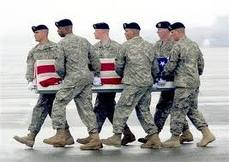
As you might imagine, we have been doing research and accumulating multiple types of data for well over ten years. Much has been on PTSD along with statistics on various numbers of vets who served in different wars, as well as their injury and death counts.
Over the last two weeks we have had numerous individuals send us a variety of articles and information on the Vietnam War. Perhaps the most startling was a number that I checked out through several sites; it was a number that claimed only 1/3 of veterans who served in Vietnam are still alive. This number was part of a 2000 census count, so I can only assume the number is far lower ten years later. The actually statement was “Of the 2,709,918 Americans who served in Vietnam, less than 850,000 are estimated to be alive today”.
Yikes. This is a number neither Tony nor I ever expected. Perhaps we don’t want to admit that we are growing that much older. Or perhaps the numbers may show an underlying concern with the health of Vietnam vets who endured massive amounts of toxic chemicals while serving in the war zone. At any rate, the small number of Vietnam vets still living is a real worry.
Another statistic that we have seen is that of the 9,087,000 military personnel who served from August 5, 1964 – May 7, 1975, only 2,709,918 actually served in Vietnam. Of those who were in Vietnam, only around “40-50% either fought in combat, provided close support or were at least fairly regularly exposed to enemy attack” (Bob Beavis, 2010).
And most alarming in a 1995 census around 9.5 million individuals falsely claimed that they had served in Vietnam when they had not; in the 2000 census almost 14 million individuals falsely made such a claim. Yikes, no wonder the Veteran’s Administration is having a harder time trying to identify who did and did not serve when there are so many “false” claimants in America. As my grandmother would say, “Shame, shame, on all of them”.
Last, and this I find very interesting given the amount of press that has been given to the number of Vietnam vets who were supposedly alcoholics, drug users, and homeless, according to various vet sources (VFW Magazine, the Public Information Office…) there was/is no difference between those populations who served in Vietnam and those who did not.
Also, we often hear about how many Vietnam vets ended up in prison… simply not true. Vietnam vets were less likely to be in or served time in prison – only ½ of one percent (Bob Beavis). Over 82% of Vietnam veterans seemed to have made a pretty successful transition to civilian life in spite of dealing with severe injuries and PTSD.
So congratulations all you Vietnam vets; you have lived a truly exceptional life, served your country with honor, and had the incredible strength and internal courage to continue to live life with high principles and personal pride.

